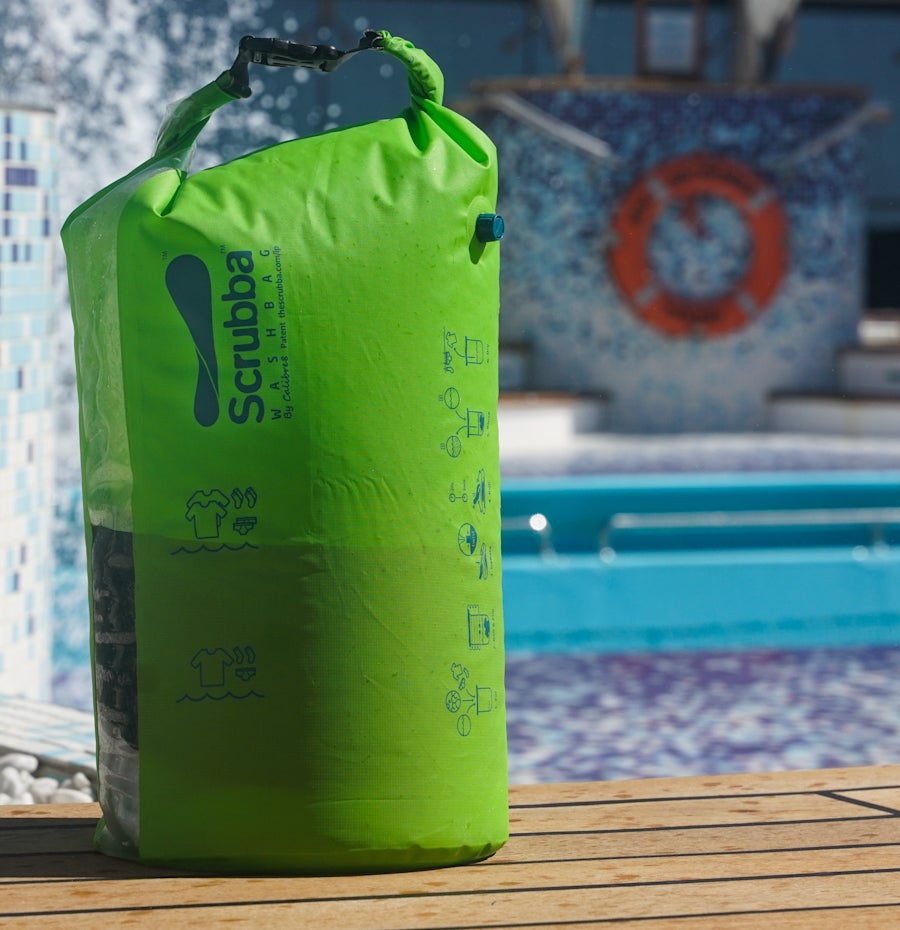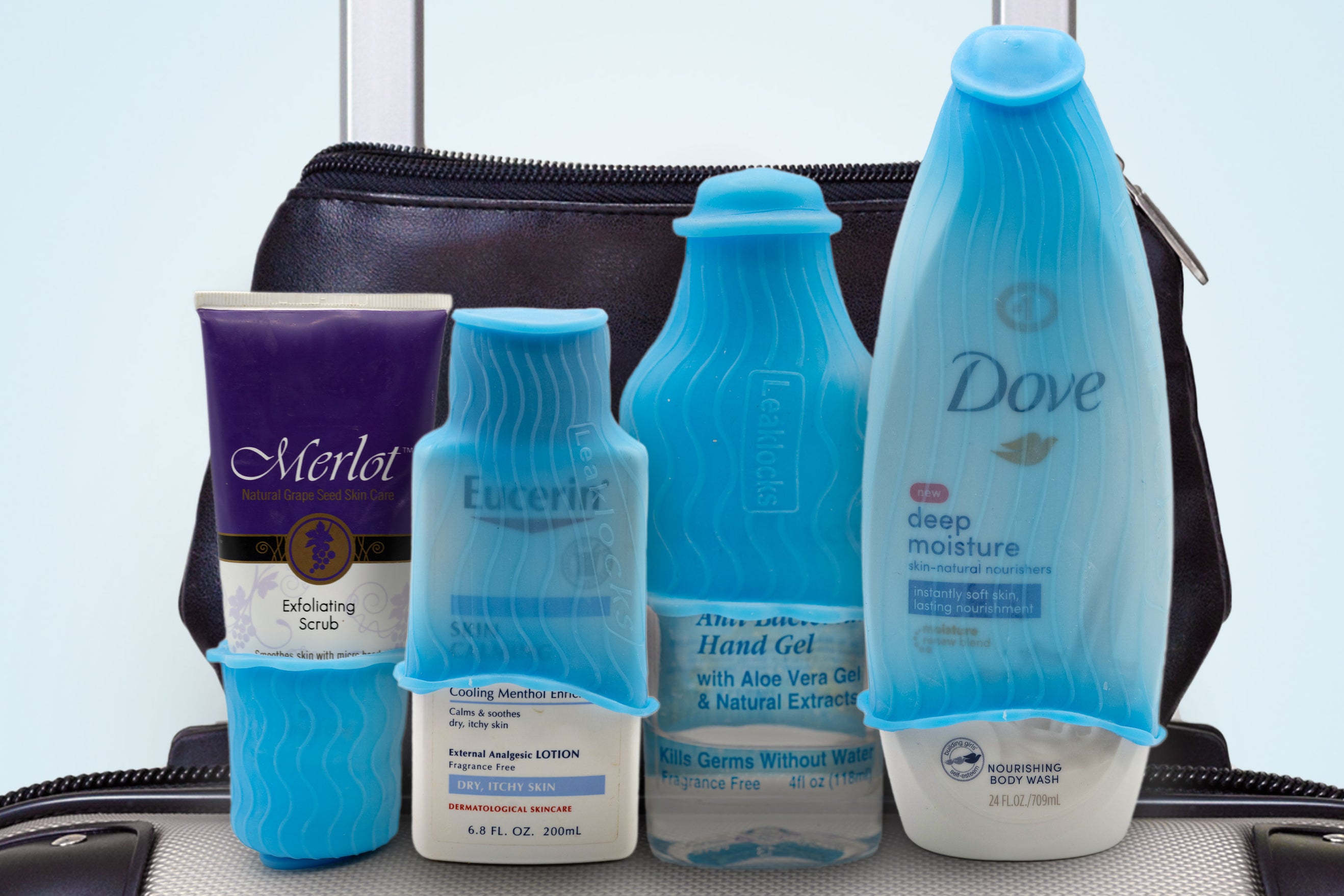Given that cruise ships are floating hotels, first-time cruisers would be forgiven for thinking that they can simply pack as if they're staying in one.
Wrong - as revealed here by travel experts, including one who's been on over 90 cruises.
They point out a host of helpful tips tailored to making a first-ever voyage plain sailing - from hooks that work particularly well in cabins, and 'game-changer' clips for poolside, to the reason you should never forget your passport, even on a domestic trip.
Fill carry-ons with important items
Passengers should make sure they stuff their carry-on with items they think they'll need during the first few hours of boarding, Dean Van Es, CEO of Fast Cover Travel Insurance, tells The Independent.
.jpeg?trim=203%2C95%2C69%2C63)
He explains: "Something first-timers might not know is that it can take hours for their checked bags to reach their rooms after they board.
"So, if they're planning on heading straight to the pool but don't have their bathing suit in their carry-on bag, they could be waiting a long time for a dip. The same goes for important items such as medications and phone chargers."
Magnetic hooks
Magnetic hooks have a force of attraction for seasoned cruisers.
"Most people don't realize that the walls of cruise ship cabins are made of metal," reveals Don Bucolo, one half of the husband-and-wife team behind the travel blog and YouTube Channel Eat Sleep Cruise.
"We bring along magnetic hooks to help organize gear, such as day bags, coats, hats, and other clothing items.
"With limited storage in most cruise ship cabins, magnetic hooks can help create more space."
Towel clips
The plastic towel clips that look like giant chip clips are "absolute game-changers by the pool", says Don, who's been on over 90 cruises.
He continues: "There's nothing more frustrating than having your towel constantly slide off your deck chair, and these little clips solve that problem instantly. Plus, they help mark your spot when you step away from your lounger."
Ziplock bags in various sizes
Ziplock bags may be mundane, says Don, but they are "incredibly versatile" and can be used to organize and protect a host of small items.
He notes: "We use them to organize toiletries, protect electronics from splashes, separate dirty clothes from clean ones, and they're perfect for ensuring wet swimsuits or sandy shoes don't contaminate the rest of your luggage.
"They take up no space but solve a dozen different packing problems."
Bottles of wine
.jpeg?trim=33%2C0%2C33%2C0)
Save money on wine by packing your own, says Don.
He explains: "Most major cruise lines let guests bring up to two 750ml bottles of wine in their carry-on on embarkation day.
"Bringing bottles of wine is a great way to save some money on drinks on the ship. Just make sure to check your cruise line's policies on bringing alcohol onboard to ensure the wine is not confiscated at the port."
Scrubba wash bag

Most cruise ships do offer a laundry service, but you can save on the fees by using a Scrubba, a 5oz, pocket-sized "washing machine in a bag".
Users simply add water and laundry liquid, or sheets, close and deflate the bag, then rub clothes against the inner washboard for up to three minutes.
The clothes are then rinsed in the bag and hung out to dry.
This wash bag has "helped over 450,000 travelers wash their clothes anywhere, anytime", says Scrubba.
Power strips without surge protection
"Most ships ban surge protectors," notes Don, "but basic power strips are usually allowed.
"With only one or two outlets in most cabins and everyone having multiple devices, a cruise-ship-approved power adapter is all but necessary. We can charge phones, tablets, cameras, and portable batteries all at once instead of taking turns or fighting over outlets."
Toiletry 'skins'

You can prevent toiletries leaking onto your favorite cruise outfit by using a 'LeakLock', a 'skin' that fits over bottles to prevent explosions in transit.
Inventor Lisa Lane tells The Independent: "A big issue many cruisers don't think about is that most have to fly to the port where their cruise departs.
"The change in air pressure during flights causes bottles of shampoo, conditioner, sunscreen, and other liquids to expand and leak — often all over clothes packed in the same suitcase.
"The last thing anyone wants is shampoo soaking into their formal gown or favorite cruise outfit before they even board the ship.
"That's exactly why I created LeakLocks — to prevent messy leaks, protect clothing, and give travelers peace of mind."
Don't forget your passport — even if it isn't required
Even if you're on a domestic cruise, it's wise to pack your passport regardless.
So says Becky Hart, marketing strategist at travel insurance firm Seven Corners, who points out that "if you get sick or hurt during the cruise and need to be transported to the nearest hospital, that could end up being in a different country".
She adds: "You don't want medical attention to be delayed because you don't have the proper documentation.
"You might also need to dock unexpectedly at a foreign port because of bad weather. You hope you won't encounter situations like this, but if you do, having your passport is one less hurdle to worry about."
Don't overpack, even though you can unpack
If you have to sit on your suitcase to close it before a cruise, you've gone wrong.
"A commonly named advantage of cruising," says Becky, "is that you get to see multiple destinations without having to pack and repack constantly.
"When you don't have to constantly haul heavy luggage around, it can be tempting to overpack. Resist the urge to bring too many unnecessary items, 'just in case'. You're more likely to lose something, and those small cruise cabins can feel cluttered in a hurry when you're drowning in a mountain of clothes you'll never wear."







